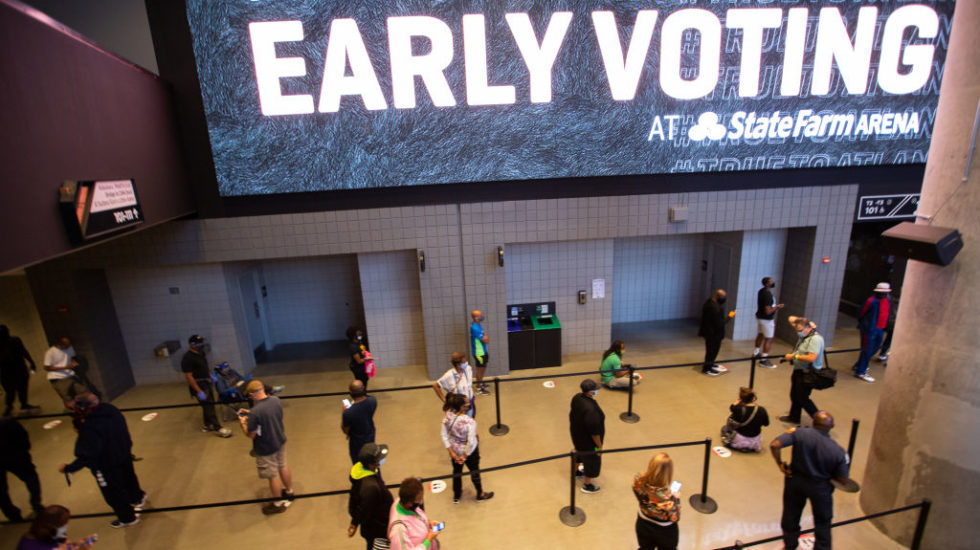The Supreme Court is hearing oral arguments in a case out of Arizona today that could have broad implications on voting in minority communities. Slate says Brnovich v. Democratic National Committee questions “whether the Voting Rights Act bars state voting requirements that disproportionately disenfranchise voters of color without adequate legal justification.”
Brnovich concerns a pair of Arizona voting regulations. One requires ballots cast in the wrong location to be thrown out, even for statewide elections, a policy Arizona’s current secretary of state admits unnecessarily disenfranchises voters, particularly in communities of color. The other criminalizes third-party ballot collection, a measure that passed the Arizona Legislature against the backdrop of racial fearmongering about voter fraud.
The Voting Rights Act was passed in 1965. According to The Center for Legislative Archives it “aimed to increase the number of people registered to vote in areas where there was a record of previous discrimination.” Specifically, section 2 prohibited voting practices or procedures that discriminate on the basis of race or color. This is what is up for review now. Time magazine writes that “what the justices decide could have sweeping effects on how difficult it will be to challenge allegedly discriminatory voting laws in the future.”
Here are two exchanges from today between an attorney representing the Republican National Committee and Justice Elena Kagan.
The New York Times calls this the “most important election case in almost a decade.”



